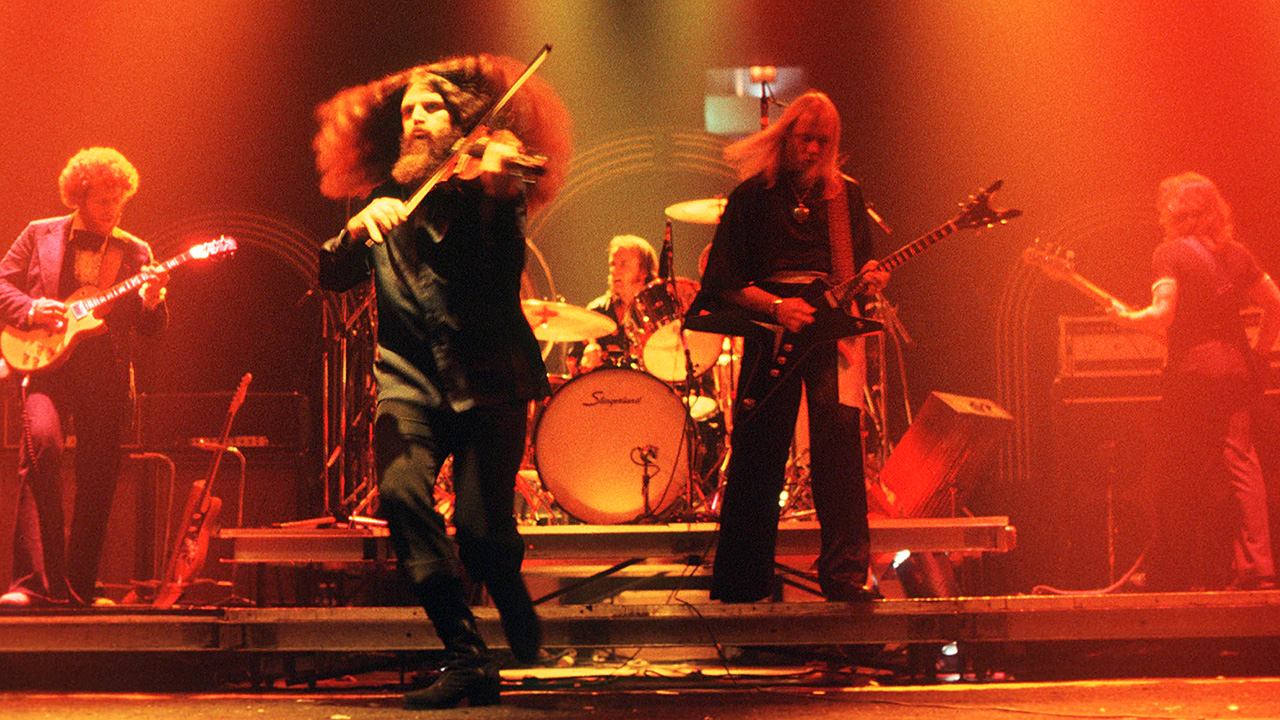By 1976 Kansas had released four US singles without bothering even the lower reaches of the chart. But their fifth attempt changed everything. Carry On Wayward Son was actually edited for the single edition, with two minutes shaved off the Leftoverture album version. It was the band’s only charting single in the UK, reaching No.51 during a seven-week stay; while in America it hit No.11, only bettered by 1978’s Dust In The Wind.
In two separate interviews, combined here, guitarist and writer Kerry Livgren and bandmate Rich Williams told Prog how the song came together, and how it lives on in their live shows.
Where did the inspiration for Carry On Wayward Son come from?
Livgren: I have no idea! I was under such pressure to write the album at that point that I kinda launched myself into a gear that I had never had before. I was a writing machine. I’d come home from rehearsal having learned one song, and that night I’d write the next one. This went on for days.
Steve Walsh wasn’t writing at that time, so it all fell to me. Carry On Wayward Son was the last one I wrote. It was the last night we were in Topeka. I came into the studio on the last day and said, ‘I think you better hear this one’. The guys looked at each other and said, ‘We gotta do this.’
Williams: When Kerry brought it to the table our initial reaction was: ‘Oh fuck, we’ve got another song to do!’ We were in a rehearsal hall and the next day we were packing up and leaving to start recording.
But as soon as we got over the laziness of not wanting to learn any more material, we realised Wayward Son was a very cool song. We knew right away that it was going to be replacing some other track.
What was the reaction to it?
Livgren: Well, it went close to the top of the charts and stayed there for some time. It was a song where every component was a hook – the opening riff, the verse, the chorus, the middle section. Even the guitar solo was approached that way.
Did it help that that the single version was edited down to three and a half minutes?
Wilson: It probably did – up until then, left to our own devices, it could’ve been a 15-minute song with a long Hindu middle or something!
Did you feel like pop stars?
Livgren: We never felt like pop stars. We’d been beating the road for years and making albums. But that song opened the doors to a whole audience. It was the difference between being an opening band and playing stadiums.
Not only was it a financial blessing, but it opened up a whole new world of audiences
Kerry Livgren
Was having a hit a blessing or curse?
Livgren: I’d say it’s a blessing. Even today, when the royalty cheques come in, it’s significant. Not only was it a financial blessing, but of course it opened up that whole new world of audiences for us. But it was also kind of a curse in that, as a writer, it increased the pressure on me to write hits. On the Point of Know Return album, we had to be all about writing another hit. Dust In The Wind was another similar case.
It’s a gentle curse, though. I wouldn’t even use the word ‘curse.’ Living up to it was the hard. And that’s what became challenging for the band members, living up to that expectation.
Do you ever tire of playing it live?
Wilson: As soon as we start playing it, there’s such a reaction from the crowd. It’s tremendous to be a part of that. I can never understand people who say, ‘I get so sick of playing the same old fucking songs.’ It’s like, ‘Wow, they’re your songs; they’re what put you on the map. They’re why people are standing in front of you – and you don’t like it? Maybe you need to try another job!


